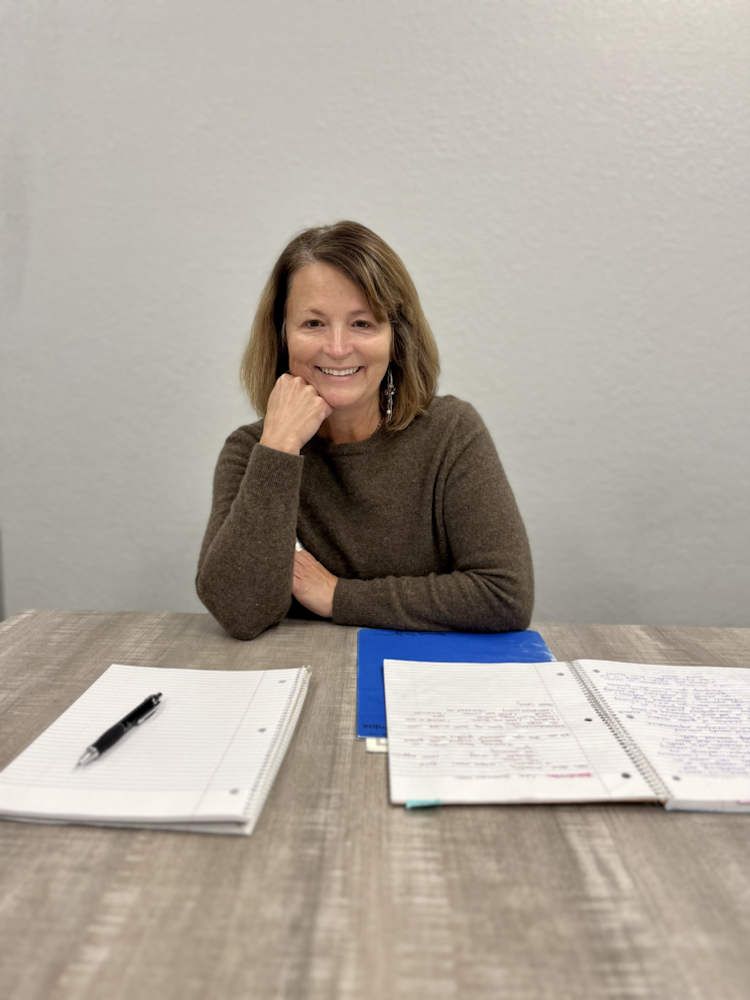Mediator, Gwen Badgerow
Gwen completed the specialist level master’s program in School Psychology at Illinois State University and was nationally certified in 1998 as an NCSP. Gwen was twice nominated by colleagues for the prestigious Tad Smith practitioner of the year award through the IL School Psychologists Association (ISPA). She has been recognized in public schools for services focused on problem solving and facilitating high stakes decisions impacting children identified with disabilities.
Gwen first completed training in mediation at the Justice Center of Atlanta (JCA), including special education mediation training in 2015. (https://www.justicecenter.org)
Gwen then completed the Graduate Certificate Program in conflict resolution at Dominican University in River Forrest, IL in 2022 (https://www.dom.edu).
About Gwen Mediation
Gwen Mediation offers conflict resolution services located at Family Connections in Morton IL. Gwen has 30 years of public service as a school psychologist. She is a trained facilitator, mediator, and conflict resolution trainer. Gwen provides a facilitative approach to resolving issues related to conflict. This includes marriage/divorce, separation, parenting plans, with attention to the parenting concerns for children identified with special needs. Gwen will also provide educational consultation related to IEP or 504/MTSS services and advocacy. Mediation services are available to address conflicts related to all stages of life, in our relationships, schools and workplace. See Gwen’s intake form for options. Gwen also provides conflict resolution training for professionals targeting educators, workplace culture and personal conflicts at home.
Why the interest in conflict?
Conflicts increase our brain’s neurological stress response and impact our well-being and health. The skills needed to resolve conflicts are generally not taught in our upbringing or education. Conflict resolution is a specific form of skilled communication and can be practiced and learned. When we leave issues unresolved, we create a unique form of grief impacting the quality our lives for ourselves and others.
What to expect during mediation:
Once you complete the intake form you will be contacted by Gwen or a member of her staff to schedule a 30-minute free consultation to discuss what services you need and to ask any questions.
Mediation is a process designed to facilitate agreements. Signing agreements (even if court ordered to attend), is always voluntary.
Mediation is a confidential process with some limits. The only exception to confidentiality is if you or another party reported or suspected child abuse, threats of, or knowledge of acts of violence.
What happens in Mediation?
The following stages are used in mediation: Opening/introductions, listing concerns, offering proposals, countering proposals or offering nuanced changes with additional brainstorming to find common interests. Private Meetings (also called a “caucus”) may be offered in some circumstances for each party to break from the joint session and have time to reflect. This meeting is one-to-one with the mediator while the other party is in a different room or offered a chance to have a break. Caucusing gives the needed space to visualize the end of disputes or consider alternatives if no agreement is reached. Many people upon reflection, see possible agreements in a new light with time to reflect.
If there is an agreement or partial agreement it will be written for each party to review with their attorney if represented. Outcomes from mediation will be submitted to the court if the case was ordered by a judge in order to document an attempt was made by the parties to mediate their dispute. However, mediation is confidential. What happens during the process is not discoverable. With hard work, and honest effort many people are able to self-determine the best solutions for themselves in a supportive and neutral environment and leave mediation with emotional closure.

